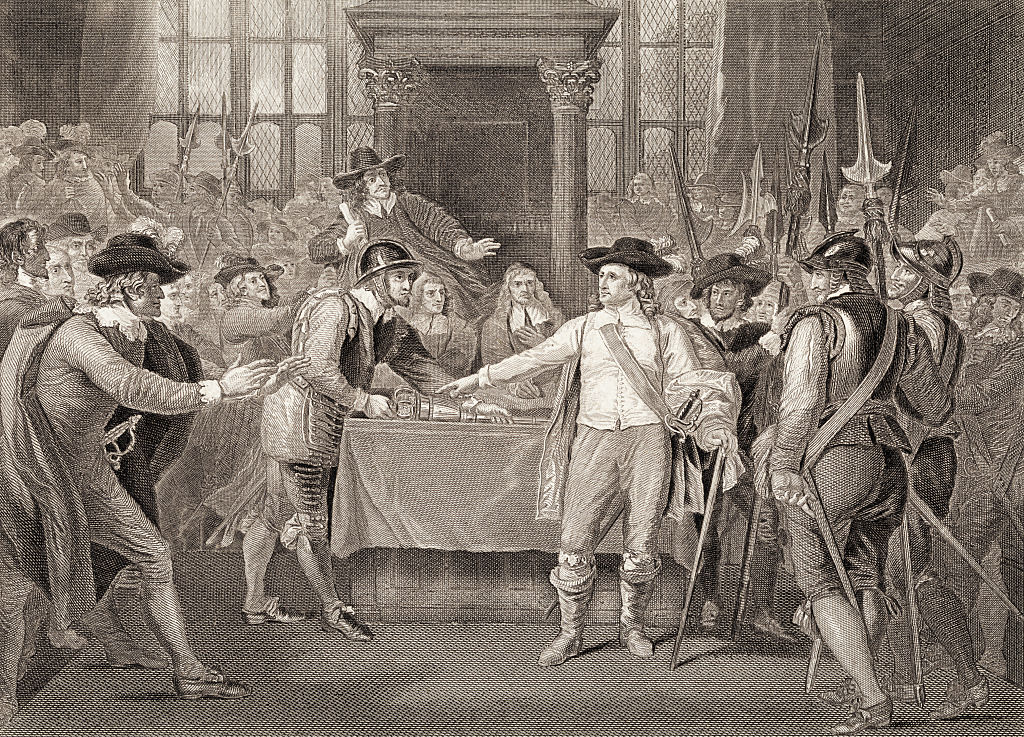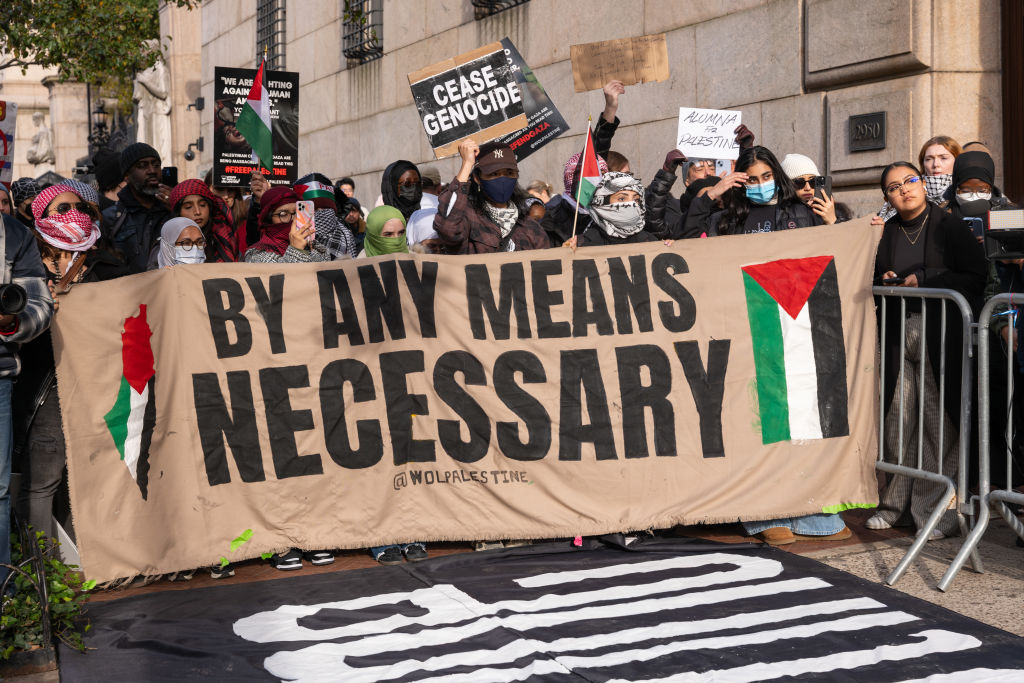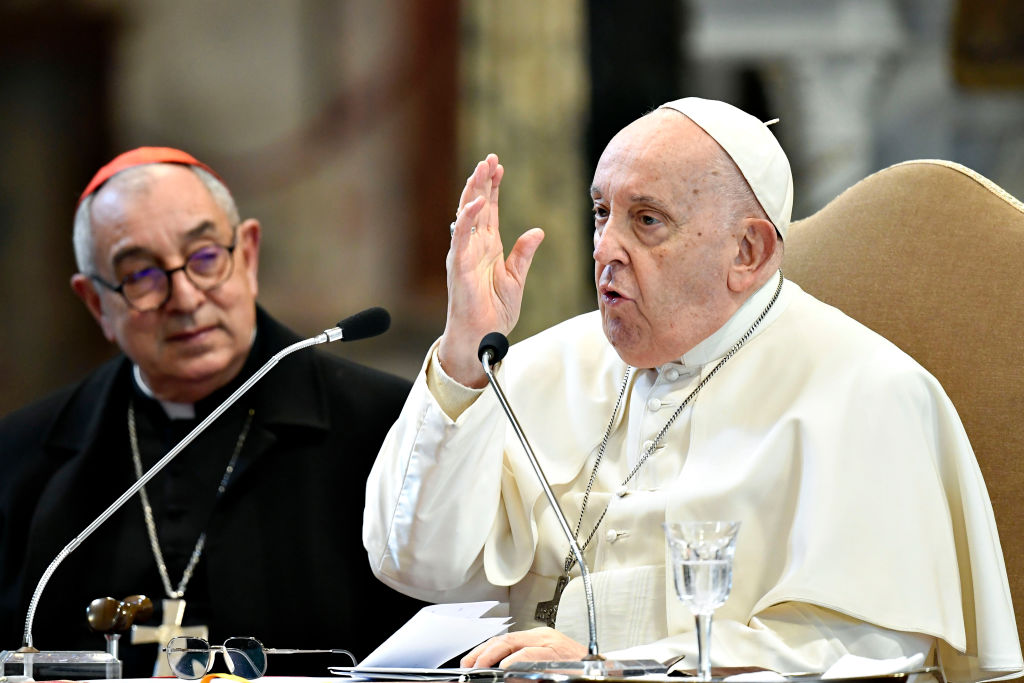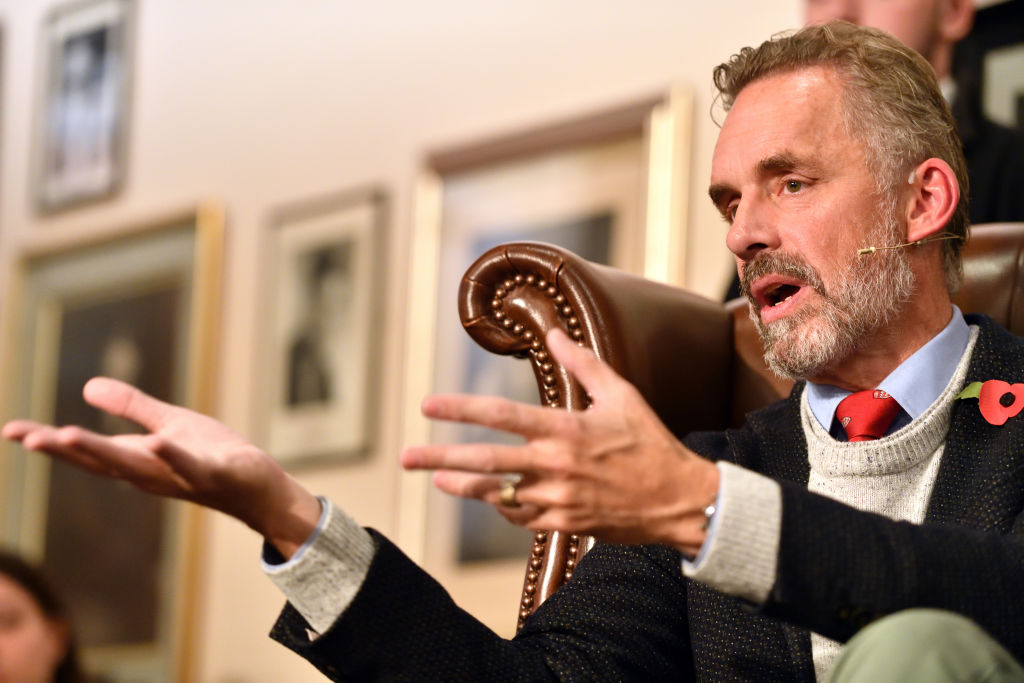What we can learn from recent celebrity conversions.
Waking Up from the West’s Regime Dreams

Only by resisting the invasion of the spiritual kingdom by the temporal can digital despotism be condemned.
Not that we didn’t see this coming a year ago and more, but 2024 is shaping up to be a sad year indeed for what many still call “the West.” The state of the leading regimes across the NATO alliance we can charitably call a shambles. A more unstinting description would pay more attention to the malevolence involved in describing today’s transition into digital despotism as a defense of our sacred democracy.
But what bears special attention is the leading role played in this process by what some still call the “Anglosphere.” There is just no arguing anymore about whether the British and Canadian regimes, to take the two most glaring examples, are forces for good or bad. It is the Anglos who have dived headfirst into refounding the globalized “West” on the basis of digital despotism. And it is the Anglos who have embarked on this mission with such frantic pride because they believe they have created and established the new religion necessary to restore the political authority of their elite and extend it over not only human beings but cyber machines.
This religion as we are all well aware is represented by the ever-morphing flag of color, which no longer represents mere ethnic or sexual identifications but a kaleidoscope of terminological ones only made possible through, and only having appeared since, the mastery of our everyday inner and outer lives by digital technology. There is no daylight between the established woke religion and the new cyborg founding. Woke governance requires a woke supercomputer and a priestly caste to algorithmically catechize it; rule by borg requires an overawing spiritual and ecclesiastical hierarchy that merges the human and machine into one mass.
Therefore the painful question lurking in everyone’s minds and hearts is why the Anglos, specifically the Anglos, have done this. In fact the Anglos have been quite relentless in trying to refound their regimes—and tomorrow the world—on the basis of transformative, comprehensive new creeds. From Puritanism to Communism, from Colonialism to Globalism, various Anglo movements have scrambled for centuries to set themselves, and then all others, on a fresh pediment meant to be final, pure, and absolute. The Bible. The New Israel. Whiteness. Species being. Equality. Science. Technology. Every generation seems to beget a new idol. And each new idol, on the apparent brink of achieving the desired utopia, falls.
So the pattern has been, anyway, since the Reformation hit the British Isles and touched off the Civil Wars. Harsh a verdict as it may be, we must be honest enough at this late date to admit that however great or good its achievements, the United Kingdom has simply not been able to preserve and sustain them, due to its deep-seated inability to securely ground its regime on a spiritually authoritative foundation. It does not take that much more courage to go on to consider that this original malady has spread wherever Anglos have spread too.
With, that is, one very importantly qualified exception. Puritans who fled the collapse of their homeland brought on by the Wars of Reformation discovered in America a radically different concatenation of circumstances—in that heady sense a genuinely “new” world, one difficult not to see as in some grand way providential. The American condition made it possible for New England Puritans, Virginia and Carolina Cavaliers, Maryland Catholics, and others to patiently grow their new regimes through shared hard work—something that had become devilishly prohibitive across the Atlantic.
The depressing toil of the English to refound their regime during the Civil Wars speaks poignantly of the severity of the problem. Perhaps a Catholic monarch. Perhaps a Protestant one. Perhaps a Protestant republic. No, not that one, a more radical one. Perhaps rule by one man, not a king but the right kind of Protestant. No, one man and Parliament! Well, perhaps that man might eventually become king and restore the monarchy. Ah, no, what’s needed is a latter-day “Sanhedrin” of “Fifth Kingdom saints” (yes, Cromwell had to deal with this challenge from a no doubt well-meaning rival). The list goes on, and went on, morphing through the decades and centuries, right through to the present day, never recovering the ground that once was, now hopelessly lost, probably due to the eradication of the ancient monasteries.
Whichever of America’s myriad challenges we might consider, the early Americans avoided nearly all of this. The American Revolution was itself a Civil War between factions that mapped very closely onto the religious and ethno-cultural sects imported from Britain. But by the time the Founders rose to power, that factionalism had been sufficiently tempered by federalism, and the disciplines and necessities of local self-government, to give them at once a more practical and more attainable task of regime-building than what the British faced—ironic, in a way, considering how much more sweeping and intellectual.
The Americans did not live in a venerable homeland, much less one whose spiritual foundations and ancient regime had been destroyed and seemed irrecoverable. The task of establishing a regime for them—calibrated and constructed with a wise and prudent eye to who they were, how they lived, what they trusted, and what they could be trusted with—appeared through the lens of history to be far more momentous and impressive than the regime challenge Britain faced. But in fact the Founders had it relatively easy, and they seemed to grasp this: here was a landed people situated so well that the most generous of ancient political philosophies could be responsibly tested in a new way at a new scale.
For the Founders it was not simply that natural rights were true and republican government good, but that the constitutional federalist regime of divided powers that arose from them could actually be peacefully and fruitfully sown in the soil of the American people. Were the soil not so well suited to the seed, it would not grow. Even philosophically perfect ideas and ideals of justice bear vile fruit where ill planted.
And sure enough, even the more perfect union of Lincoln’s dearly bought refounding was perverted or cast aside with astonishing swiftness, as new communications technologies hastened the arrival of utopian innovations in regime-making, the obsession of the post-Reformation Old World, on America’s intellectual and spiritual shores.
For a time, America’s favorable conditions helped America’s Protestants absorb these destabilizing developments—and the massive influx of Old-World newcomers that came with them—without being totally overwhelmed. The balance of conditions favored a reasonably stable Judeo-Christian Nationalism that synthesized Zionist Protestant attitudes toward religion, law, work, and war with the neoclassical political philosophy of the Founding. This productive mix of tension and harmony simply could not be achieved, and was not achieved, in the Old World—notably not even in Britain itself. The regime of the British Empire collapsed mid-century in spectacular fashion, and now, nearly a century later, it is fair to say that the regime of the United Kingdom itself is hurtling toward collapse.
What Britain has so long suffered from is a protracted problem of spiritual authority, nowhere nearer to being resolved than it was during the Wars of Reformation. It is a problem that has been passed on to its colonies, and while America was providentially spared the worst of it, and blessed with the capacity to absorb and defuse for a time the worst of what it did receive, today it’s clear America’s deep defenses against utopianism have been grievously worn down, and its spiritual soil has become dangerously rocky and barren. The woke borg believes it can at last solve the problem of spiritual authority in the Anglosphere, and to be sure, it is mustering weapons and tools of unprecedented power and reach in order to do so.
But from a classically American standpoint—not to mention a historical or Christian one—it is ludicrous to expect that the kind of absolutist digital despotism presented as the final solution to the Anglo’s now globalized woes can long endure. The only question, as with international Communism, is how many must die before it does.
Unfortunately, too many Americans, Anglos, and Westerners are still locked into the imitative pattern of the Wars of Reformation to understand how they got into this mess and how they might get out. The evidence of this spiritual dilemma is everywhere; the conflict over college provides a glaring, recent, and trendy example. Beyond doubt, America’s higher education system has become a nightmare version of the Scholastic universities, which gradually raised generations of elites to believe that mastering knowledge of the book of nature was the key to achieving and implementing governance perfected by religious and spiritual authority.
It’s all too easy to understand why Americans who rightly wish to correct the errors of rule by an overeducated established caste of bogus woke priests resort to metaphors and identities drawn from the Wars of Religion. “Today’s universities are as corrupt as the medieval Catholic Church,” Peter Thiel says, announcing his latest round of no-college fellows. “The Reformation is underway.” Considering this formula, as I do here, from the relative remove of an Orthodox Christian standpoint, it is hard to escape the sinking feeling that the cursed and bloody history of the struggle among Catholics and Protestants to purify the Law—by striving through reason to perfect the knowledge of justice—is being catalyzed to repeat itself. The present refounding struggles roiling the Anglophone West, including ongoing efforts to unseat both Rishi Sunak and Benjamin Netanyahu, deepen that impression.
To be sure, Orthodox have their troubles too. But they have largely preserved, at heavy price, the deep original Christian insight that the decisive and primary spiritual struggle is in one’s own the heart, not over the written code. Herein lies a political theory worthy of this moment no less than any other. Last Friday, by the new calendar, the Orthodox Church remembered the Holy Forty Martyrs of Sebaste—loyal Christian warriors of the imperial Roman Twelfth “Lightning” Legion. Amidst a civil war of religion waged by Licinius against the supporters of his co-emperor Constantine, the Legion was subjected to the means by which Licinius aimed to purge Christianity from his portion of the empire and its army. Refusing to sacrifice to the old pagan gods, the Forty were progressively jailed, flattened, stoned, tortured, and finally marched into a freezing lake to die overnight. At dawn, the few remaining survivors were mutilated until dead.
The point is not at all to renounce the political life. A great generosity toward regimes is entailed in the Church’s apostolic teaching that governors and regimes are to be prayed for and obeyed. The “red line” is the invasion of the spiritual kingdom by temporal forces: compulsory worship of false gods and idols; obstruction or prevention of observance, worship, and communion; imposition and enforcement of laws which demand the violation of the commandments. There is no justification for these unholy acts, as there is no justification for complicity in them.
It’s on these grounds and to this extent that, for the Christian, the usurping digital despotism rising up around us must be condemned and cannot be obeyed. But the subtler teaching demands attention too. Today’s overintellectualized vogue for marking your identity by which regime type you favor distracts us from the truth that regimes are tricky things, unstable yet immensely difficult to switch in and out—especially those caught in the grip of utopianism or wrestled over by warring utopian factions. Particularly in such dangerous and deluded circumstances, one does not simply restore justice and flourishing by seizing control of the Law, no matter how well-intentioned, well-educated, and well-armed. The prideful appetite to relive the mythos of the sacred Lawgiver, whether in a Hellenic or Hebraic key, must be resisted. The heart must be humbled: the regime change without which none other might bring hope or harmony is the overthrow of the rule of sin and passion in the deep and mysterious inner chamber where the loving God makes His home.
The American Mind presents a range of perspectives. Views are writers’ own and do not necessarily represent those of The Claremont Institute.
The American Mind is a publication of the Claremont Institute, a non-profit 501(c)(3) organization, dedicated to restoring the principles of the American Founding to their rightful, preeminent authority in our national life. Interested in supporting our work? Gifts to the Claremont Institute are tax-deductible.
Liberal Jews are desperate to maintain the delusion that their major enemies are outside the house.
Young Nietzscheans should look to Tocqueville as a more politically responsible source for a new politics.
Higher education has always been a religious quest.
Pope Francis’s dalliance with a tyrannical ideology needs to be confronted.
The apostle of precision hems and jaws about his religious belief.






